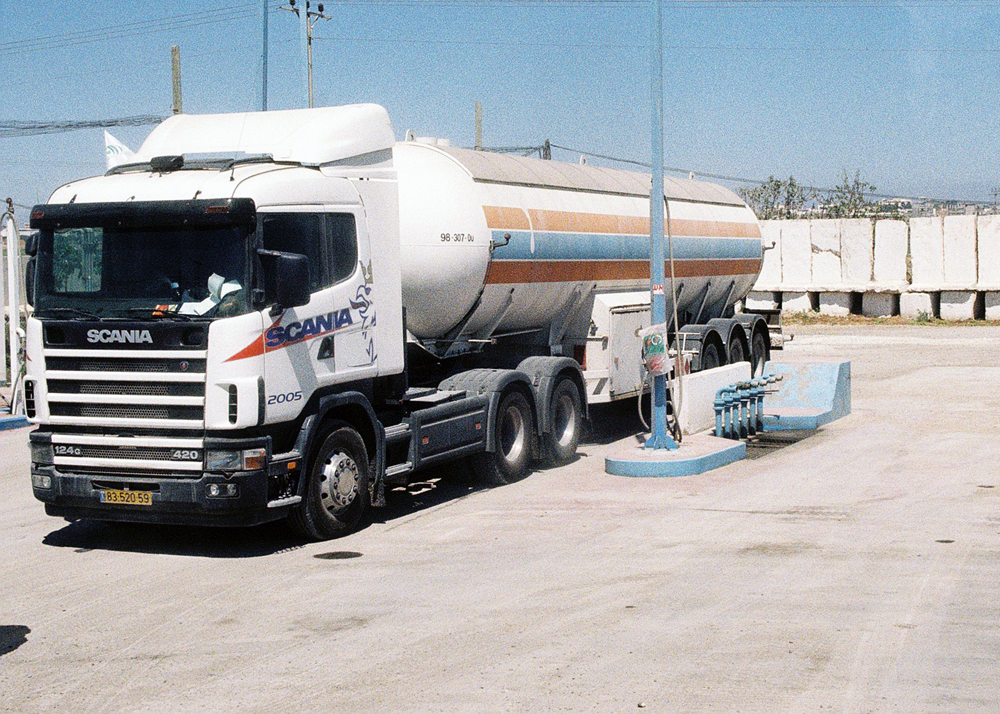An attack by Palestinian militants on 9 April on the Nahal Oz crossing, through which fuel is transported from Israel into the Gaza Strip, left two employees of the Dor Alon fuel company dead and caused the closure of the crossing.
"The crossing will be closed for the time being and activities suspended until we receive further orders from the Ministry of Defence", an Israeli military official told IRIN.
All fuel supplies, including industrial diesel for Gaza's sole power plant, are affected. Dor Alon, as well as the European Union which pays for the plant's fuel, told IRIN it was not certain when deliveries would resume. The power plant has some reserves, but an extended stoppage would adversely affect power production.
An official at Israel's Foreign Ministry said: "The terrorists who attacked the fuel terminal today are trying to harm [the transfer of humanitarian supplies] and thereby the lives and welfare of the residents of Gaza."
The attack, condemned by the UN's Ban Ki-moon, comes on top of a strike by Gaza's fuel importers which began on 7 April as a protest against the Israeli restrictions which are keeping import levels far below what Gazans say they need.
Khozondar said petrol imports were only about 6 percent of Gaza's needs, while diesel imports represented about 25 percent of requirements. The association and petrol stations have had to lay off workers.
The strike and the attack are expected to affect the Gaza Coastal Municipalities Water Utility (CMWU), which supplies drinking water and treats sewage.
"We have not received any fuel in two weeks," said Monther Shoblak, director of the CMWU. Some 30 percent of Gazans were not receiving regular supplies of drinking water. CMWU last received a shipment of 45,000 litres two weeks ago, though it needs about 150,000 litres a month.
Sewage still being dumped in sea
Shoblak said he was using sewage pipes as underground reservoirs, waiting until they filled up and only then pumping the waste water out, though this was a somewhat risky way of saving fuel.
The CMWU continued to dump about 20,000 litres of raw sewage and up to 40,000 litres of partially treated sewage into the sea per day.
Basem Naim, the minister of health in the Hamas administration in Gaza, told IRIN that within a few days ambulances would run out of fuel. "The lack of fuel is a true danger to the healthcare system," he said, adding that he did not have significant reserves.
 Photo: Wissam Nassar/IRIN  |
| Sewage floating off the coast, west of Gaza City. About 20,000 litres of raw sewage and up to 40,000 litres of partially treated sewage is dumped into the sea every day |
People in Gaza, already used to limited amounts of fuel for their cars, have turned to their mechanics, who transform their engines to run on cooking gas. Even before the strike, drivers would queue for days to get fuel.
The Gaza Petroleum and Gas Authority, an official agency, said it was opposed to the decision to strike, although it agreed the amounts coming in were too small.
Similarly, a spokesman for the Foreign Ministry of the West-Bank-based Palestinian Authority government said it would work to pressure Israel into allowing in greater quantities, but in the meantime the fuel importers should continue their work.
The strike had not affected fuel for Gaza's power plant, which continues to run below maximum capacity as it only receives about two-thirds of the required quantities.
shg/ar/cb
This article was produced by IRIN News while it was part of the United Nations Office for the Coordination of Humanitarian Affairs. Please send queries on copyright or liability to the UN. For more information: https://shop.un.org/rights-permissions





